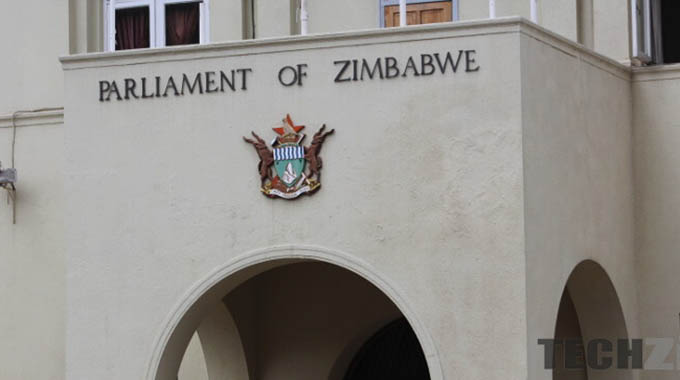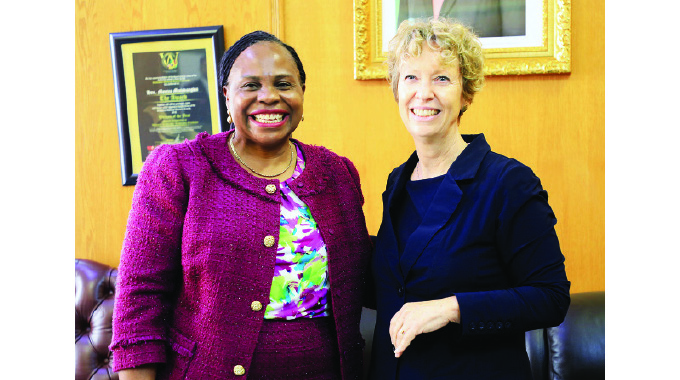Record 41 Bills face Parly

Zvamaida Murwira-Senior Reporter
The Fourth Session of the Ninth Parliament will have to deal with a record 40 Bills, many finalising the convergence of statute law with the Constitution while others deal with new needs, given that at least 10 Bills were still outstanding from the last session to add to the 31 Bills that President Mnangagwa spelt out when he opened Parliament last Thursday.
Ten Bills, which were debated in the last session of Parliament were at different stages in both the National Assembly and Senate. Technically, they have to be resubmitted but with some of the work already done, Parliament can agree to place the Bills at the stage they had reached when the Third Session was prorogued, thus making all matters before Parliament lapse.
Some of the Bills already before Parliament include Copper Control Amendment Bill, Police Amendment Bill, Guardianship of Minors Amendment Bill, Zimbabwe Independent Complaints Commission Bill, all of which were at their Second Reading Stage in the National Assembly.
The Public Finance Management Amendment Bill, Provincial Councils and Administration Amendment Bill, were at an earlier stage, having been introduced but then sent to the Parliamentary Legal Committee.
The committee is an arm of Parliament that scrutinises Bills to ascertain their consistency with the Constitution.
In Senate, there is the Pensions and Provident Fund Bill and Marriages Amendment Bill.
The Marriages Amendment Bill has been in Parliament for almost a year as parties have been haggling over a clause that stipulates that bride price could not be used as a barrier in solemnising customary unions by two consenting adults who satisfy all other legal requirements, putting customary unions on the same level as civil unions where lobola is not a requirement.
That clause has been fiercely resisted by the senator chiefs who feel that lobola payment is the hallmark of any valid customary marriage.
Government ministers steering the Bills will have to request Parliament that the Bills be restored for debate at the stage they were in the previous session given that procedurally, all business in a given session lapses with the coming to an end of that session.
In the health sector, Parliament will consider Medical Services Amendment Bill, the Medical Aid Societies Bill, and the Health Professions Amendment Bill.
It is envisaged that the Bills should result in a consolidated legislative strategy to achieve Universal Health Coverage, enhanced access and affordable health services.
Parliament will also consider the Amendment of the State Universities Statutes Bill, which seeks to amend the Acts governing the 13 State Universities, to align their governance with the Constitution and enhance conformity with the Heritage Based Education 5.0 policy. The Broadcasting Services Amendment Bill will see further liberalisation of the broadcasting sector, as the Second Republic continues to reform the media landscape.
In the financial services sector, the Insurance and Pensions Commission Bill is set to empower the Insurance Pensions Commission to prescribe a minimum level of assets and liabilities and critically provide for the establishment of the Protection Fund for policyholders and Pensions and Provident Fund members.
President Mnangagwa said the Securities and Exchange Act should be amended to widen the definition of Securities to include Virtual Asset Service Providers. This will enable the Securities and Exchange Commission to regulate and supervise Virtual Assets Service Providers on a risk-based approach.
The Money Laundering and Proceeds of Crime Act will be amended to provide for the identification and assessment of money laundering and terrorist financing risks that may arise in relation to virtual assets.
It will further ensure that appropriate sanctions are applicable to errant Virtual Assets Service Providers, their directors and senior managers.
The amendments to these two laws are needed to take into account the modern digital world by explicitly including virtual assets and transactions.
The Deposit Protection Corporation Act is being amended to align the legislation to international best practices.
The Provincial Councils Amendment Bill will further implement Government’s devolution agenda, which has already transformed the country, with development projects either completed or at various stages of completion. The Bill changes the whole concept of provincial councils, so that when they are set up they will have far better links with the urban and rural district councils and be far more reflective of the needs and aspirations of the people in each province.
Through devolution, a number of brand new schools and clinics have been constructed while at some schools, additional classroom blocks have been constructed.
Clean water is also being provided to villagers, some of who walked for many kilometres to access the nearest water source, which, unfortunately was not always safe for human consumption.
President Mnangagwa said Parliament will consider the Municipal Courts and Police Bill as well as the Liquor Licensing Bill intended to ensure the efficient discharge of the mandates of local authorities.
The Disaster Risk Management Bill will strengthen the country’s responsiveness and preparedness to tackle disasters with a more systematic approach that draws on the emergency measures that have been used and refined to fight previous disasters.
A dispute settlement machinery will be rationalised to remove cumbersome confirmation procedures through the Labour Amendment Bill.
With regards to the welfare of Parliamentarians, the proposed amendments to the Parliamentary Pensions Act will address deficiencies identified in the present Act.
The Cooperative Societies Act will be amended while the law governing Private Voluntary Organisations will be amended to enhance good governance, transparency and accountability.
In his address, President Mnangagwa said the proposed amendments will further ensure PVOs operate within the thematic parameters under which they are registered.
The Persons with Disabilities Bill is set to amend the 1992 Disabled Persons Act, informed by other contemporary legislation on disability rights, while the Child Justice Bill and the Guardianship of Minors Amendment Bill will be amended to enhance rights of children, bringing the law into conformity with the Constitution but also making explicit a number of advances in child rights identified by the courts dealing with actual practical cases.
Other laws up for amendment include the Prison Act, Defence Amendment Bill, Anti-Personal Landmines Prohibition Amendment Bill. The Independent Security Service Complaints Commission Bill to provide for an independent complaints mechanism by members of the public who feel they have not been treated correctly by members of the security services.










Comments